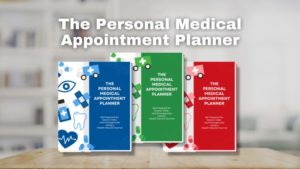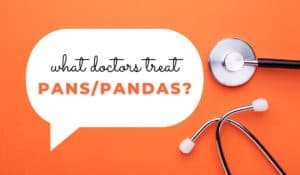I stumbled across information last year about the Pediatric Acute-Onset Neuropsychiatric Syndrome Advisory Council (PANSAC). The council is hosted by the Texas Department of Health and Human Services and has representatives from providers, legislators, community leaders, and parents.
Each quarter they meet to plan how they are going to advocate for our kids in Texas. I have watched two of the latest meetings and so far it’s mostly about educating providers and the public about PANS. There were also some very initial seeds planted for teacher education and legislation. I realize this takes time, but I felt very reassured that there is a plan to officially recognize this condition and improve awareness.
For the most recent meeting, I sent in a written public comment. The letter was mentioned but not read during the meeting. All council members will receive the letter but it is not referenced anywhere else.
This letter is specifically related to the disordered eating that is diagnostic for PANS/PANDAS in half of those with the diagnosis. I personally feel like this part of PANS is completely overlooked in diagnosis and treatment. I would like it to be incorporated into more education for providers and parents.
Below is a pasted copy of the letter I sent.
February 17, 2022
To the members of the Texas PANS Advisory Council:
PANS has diagnostic criteria of OCD and/or severe eating restrictions.
My son has both OCD and severe eating restrictions and six of the seven comorbid criteria. His diagnosis came late. A full decade after his severe food restriction started. Cynthia Kapphahn, MD at Stanford reports in this presentation that 47% of PANS diagnoses present with restrictive eating, and 23% are severe enough to meet the criteria for ARFID (Avoidant/Restrictive Food Intake Disorder) and sometimes even anorexia nervosa.
At the beginning of 2020 at 18 years old, 4.5 years into his diagnosis of PANS, my son’s eating restrictions continued to the point of being life-threatening with his lowest weight at 68% of the target weight for his age and height. No matter what we tried, at this point, he would only eat one thing. One brand-specific frozen pizza a day. OCD is not always about handwashing rituals, avoiding germs, or being meticulous in all details as the public envisions. He was afraid of food. The taste, texture, smell, and even the way it looked. He called food “poison.”
Then COVID hit and while everyone was complaining about the crisis of empty toilet paper shelves, I was in panic mode when I walked onto an entire aisle of empty frozen pizza freezers. I was no longer able to feed my child. Despite no alarm bells from anyone in our circle, I had to suddenly become the expert, identify the next step to take, and find the next professional who was willing to address the new crisis. We were suddenly transported from the PANS world and into the world of ED (Eating Disorders) which, believe it or not, actually has a diagnostic code, unlike PANS/PANDAS, and the very expensive, facility-based treatment for seven months was fully covered by our insurance company without question. Unlike, most of our recommended PANS-related treatment.
He spent seven months receiving treatment for ARFID in inpatient hospitalization, residential and partial hospitalization programs that included intensive round-the-clock supervision, assistance with eating, sensory work, individual and group therapy, psychiatric care with med management, and medical management. His care was carefully coordinated between each of these disciplines with a team approach. There was a coordinated family education and support available at every step of the way that was both facility-based and community-based. This kind of facility would be a dreamland for our PANS families. There is nothing even close to this type of care available to those with PANS/PANDAS. But many at his facility were familiar with PANDAS. My son even received two 30 day courses of azithromycin at some point, hoping it would make a difference.
Since eating restrictions are a solid part of the diagnostic criteria (and I realize it doesn’t fit all those with PANS/PANDAS), what if… those experts who treat severe eating restrictions and are likely to see our kids in their facilities actually had the tools from the PANS/PANDAS experts to treat them more appropriately? Our medical and mental health system only lets you choose one crisis at a time no matter how intertwined they are. But there is an opportunity here.
On the flip side, despite eating restrictions as a major part of the diagnosis criteria for PANS, it has never been addressed as part of my son’s plan of care by any PANS clinician. In fact, we have had two providers who recommended restricting food even further as a “healthy way” to decrease inflammation. A third doctor recommended more vigorous exercise to treat depression despite recommendations to conserve calories from his current dietitian and his previous inpatient team. Tell a person with OCD that a food is “bad” and they will restrict it more. Or to increase exercise and they will burn calories until there are none to burn. It’s not helpful and contradicts the basic plan of care for anyone with disordered eating. Sadly, I did not know this prior to getting support from the ED community and I don’t really expect that his previous specialists knew this either. How could they? That is why this needs to change. PANS providers need to know the basics of addressing disordered eating and when and where to refer to an ED specialist. This also applies to each comorbid symptom.
Identifying and establishing a plan of care for EACH of the two diagnostic criteria and EACH of the seven comorbid conditions of PANS is extremely important. Those who are just learning to treat PANS need a road map beyond treating infection, immune system dysfunction, and reducing general inflammation. No one can know it all.
My son was only three when he started to severely restrict food and was super picky. If there was an established diagnostic and treatment flow sheet for each of the P/P criteria, I would have advocated to get him sensory-based feeding therapy from a specialized occupational therapist, a pediatric OCD therapist, a speech therapist, etc. These specialized treatments could have provided the tools I needed as a parent to save him from this severe of a path. Instead, I was advised to treat it as defiant behavior instead of working on sensory and exposure therapy. Primary care teams need the appropriate tools to treat patients and advise parents.
And while primary care teams are learning from PANS specialists, the PANS specialists can in turn learn from the eating disorder teams how to recognize, diagnose and treat (and/or refer) the spectrum of eating disorders as they relate to P/P. Especially since statistically 47% of your P/P patients are restricting food. There are over 200 inpatient/residential/PHP facilities in the US that are specific to eating disorders and almost every one of them is contracted with at least a handful of insurance companies if not most major ones. Partnering with established ED treatment networks could bring a new dimension of treatment for PANS (that is much less threatening and invasive than mental health crisis hospitals) in multiple locations including in-network insurance coverage. Many ED facilities also treat concurrent mental health conditions such as Rogers Behavioral Health which has been known to take PANS/PANDAS patients. Stanford has the expertise of their inpatient eating disorder treatment center and the research program for PANS all under the Packard Children’s Hospital.
The spectrum of PANS requires a spectrum of treatment options that would include mental health AND medical intervention using evidence-based treatment to treat each part of the disorder.
I realize Rome wasn’t built in a day and much of this takes time and money. But this is my wish list:
- Established inpatient care
- Family education and support from trained advocates
- Established plan of care guidelines that include treatment for each of the criteria of PANS and not just treating the infection or immune system.
I recommend reaching out to:
National Alliance for Eating Disorder Awareness for resources about ARFID and possible connections with facilities/providers. https://www.allianceforeatingdisorders.com/about/. They are a fabulous resource for all restricted eating and have the best organized “Friends and Family” support group online.
Ovidio Bermudez MD at Eating Recovery Center. He is passionate about educating colleagues and parents alike.
Cynthia Kapphahn MD at Stanford. Her presentation on ED/PANS is referenced above.
Please feel free to use or share any of this information with your own network whom you think may have the ability to bring any of these ideas to an actionable plan.
I thank this task force for all that you do. Your work is so, so important. While watching the previous meeting, I can see the passion each of you has for helping our children. Blessings to you all.
The meeting was this morning. It was not as detailed as the previous one but there are subcommittees that are working out details of publications and presentations that are planned to promote education and awareness of PANS.
Other upcoming related events:
March 22 at 10am: PANS – An Often Undiagnosed Condition of Children of Children Across Texas
A public event from Texas Health and Human Services is happening virtually every Tuesday in March from 10-1230pm. Members from the Council will be presenting at the meeting on March 22. The link will bring you to the event flyer. Just register and show up or watch the recording.




